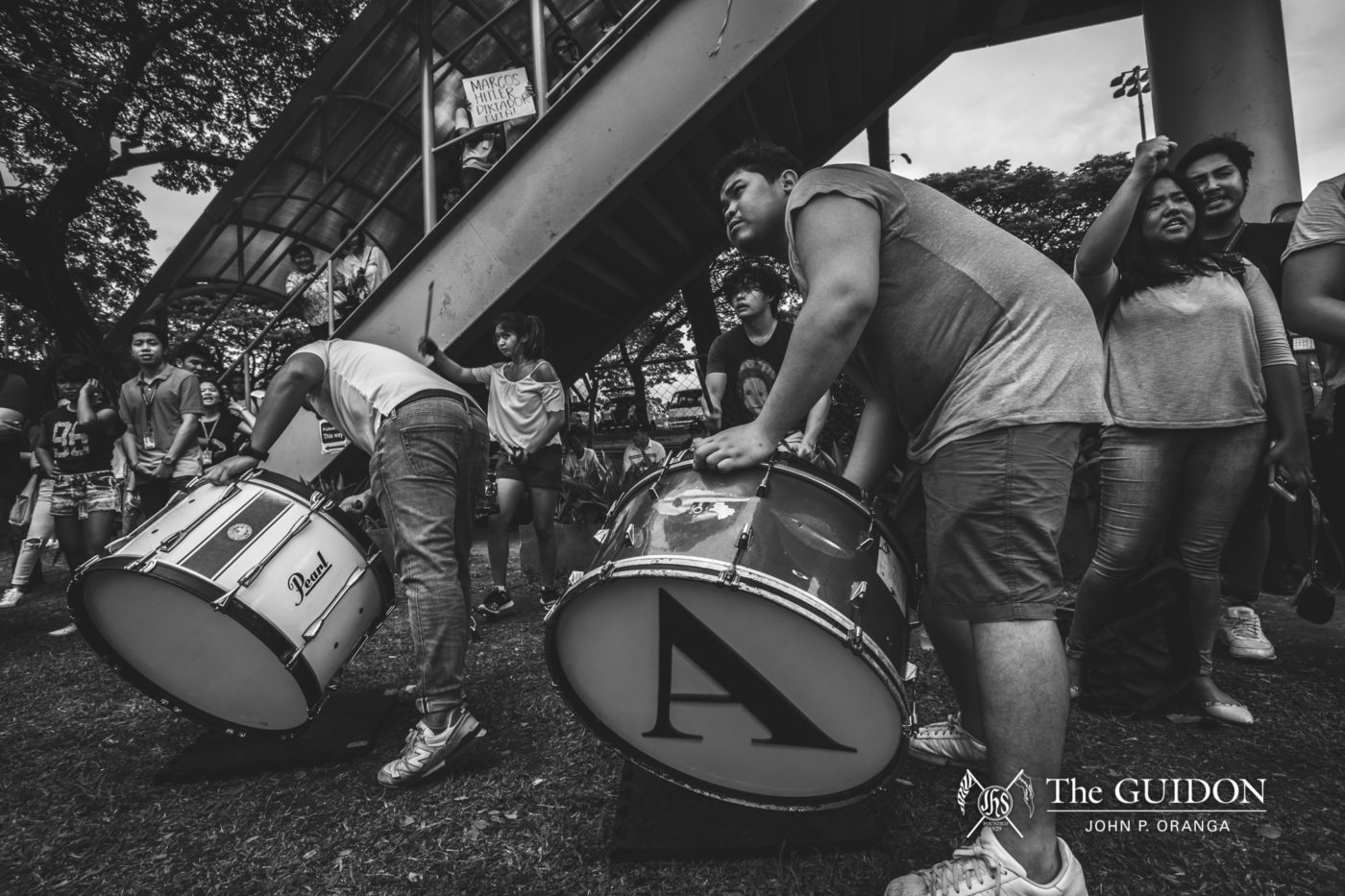MIXING SPORTS and politics is a regular topic of debate in the politically-charged climate we live in today. On one hand, sports can serve as an escape from the bustle of reality, but others may see it as a powerful medium to further engage in a larger discussion. Along this fine line reads this question: Should sports be colored by the greater context of society outside the lines?
Pundits and commentators demand that athletes stick to sports and leave these issues to the experts, or as journalist Laura Ingraham put more crassly: To just “shut up and dribble.” Closer to home, University of the Philippines (UP) Executive Vice President Ted Herbosa asserted a similar position in 2018 when he called Ateneo and UP’s black-shirt protest a “stupid idea.” He further argued that the protest was disrespectful and had no place given the magnitude of the University Athletic Association of the Philippines (UAAP) Season 81 Men’s Basketball Tournament Finals game between the two teams.
These comments reveal the crux of the argument against activism in sports: A respite from the problems of the world, athletic competition must be protected from the stain of the very problems it shields us from.
An invitation for unity
As of late, some local athletes have joined in the debate by showcasing how sports can be an avenue to tackle salient socio-political issues. In fact, Ateneo and UP’s stand against injustice wasn’t the first of its kind. In 2016, the Ateneo Men’s Basketball team and the Blue Babble Battalion decided to use sports as an avenue to contribute to the national discussion. Faced with a former dictator’s potential burial in a resting place for heroes, an act that threatens to rewrite the history books, these Ateneo teams stood in front of thousands in defiance.
In a UAAP Season 79 match against archrivals the De La Salle University Green Archers on October 4, 2016, the Blue Eagles donned black warmups in protest of the possible burial of former President Ferdinand Marcos Sr. in the Libingan ng mga Bayani.
Two months later, in a Final Four duel with the Far Eastern University Tamaraws that was held after the burial pushed through on November 18, 2016, the Blue Babble Battalion revealed the words “Not A Hero” painted on their shirts during their halftime performance.
Despite both teams’ best efforts to unite sports fans, these demonstrations received mixed reactions. Many did not heed the invitation to wear black during the Ateneo Men’s Basketball team’s first match-up against DLSU for UAAP Season 79 out of the belief that sports and politics should not mix. To gain more insight into this debate, The GUIDON caught up with current and former members of the teams that took a stand: Men’s Basketball skipper Isaac Go, former Blue Babble Battalion Captain Jovic Sosito, and Babble member Leno*.
Deafening silence
“When you wake up and find out that Marcos was buried at the Libingan [ng mga Bayani]—we wanted to act right away,” says Leno. “We wanted to use [the game] as a platform to say, ‘We can’t and will not stand for this.’”
As bold as the statement was, Sosito, the brains behind the Blue Babble protest, expressed that he felt uncertain about the effect of their demonstration. “It could have been a dangerous time to do something like that because [the government] could have targeted Ateneo, or even us as individuals,” he adds.
For the Ateneo Men’s Basketball team, their October grudge match in 2016 against the streaking Green Archers would have dominated the headlines on its own, but the team saw it as a chance to send an important message. In the eyes of these players, the possibility of a Marcos burial was too serious an issue to be swept aside. Thus came the decision to swap blue for black in the warmups before tipoff, a subtle yet powerful show of dissent against the former dictator’s burial at the Libingan ng mga Bayani.
More than an athlete
When asked about the effects of their protest, Go confided that though the team was reeling after a blowout loss, it took nothing away from the clarity of their message. “It really showed the school’s stand and what we all believed in,” says Go.
Because of their unique position, UAAP athletes have a spotlight they can shine on different issues. Sosito put it best in saying, “As a student, you are given the tools to think critically about these things, and as an athlete, you have the platform to express what you have learned. As a student-athlete, you have the power to do both.”
Sosito also recognizes sports as an avenue to make a difference. “Some things are just bigger than sports. When you use sports as an excuse to forget these issues, it becomes a bane to discourse and change,” he explains.
Some may continue to believe that sports is no place to voice dissent against society’s ills, but student athletes have begun to reject this dated way of thinking by maximizing their platform. Demonstrations by the likes of the Ateneo Men’s Basketball team and the Blue Babble Battalion have proven that athletic competition can be a powerful medium to deliver an impactful message. At the end of the day, being a sportsman not only obliges one to play fairly on the court, but to seek fairness and justice within and beyond the confines of its lines as well. *Editor’s note: The identity of the interviewee has been changed at their request in order to protect their identity and privacy.






